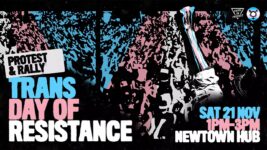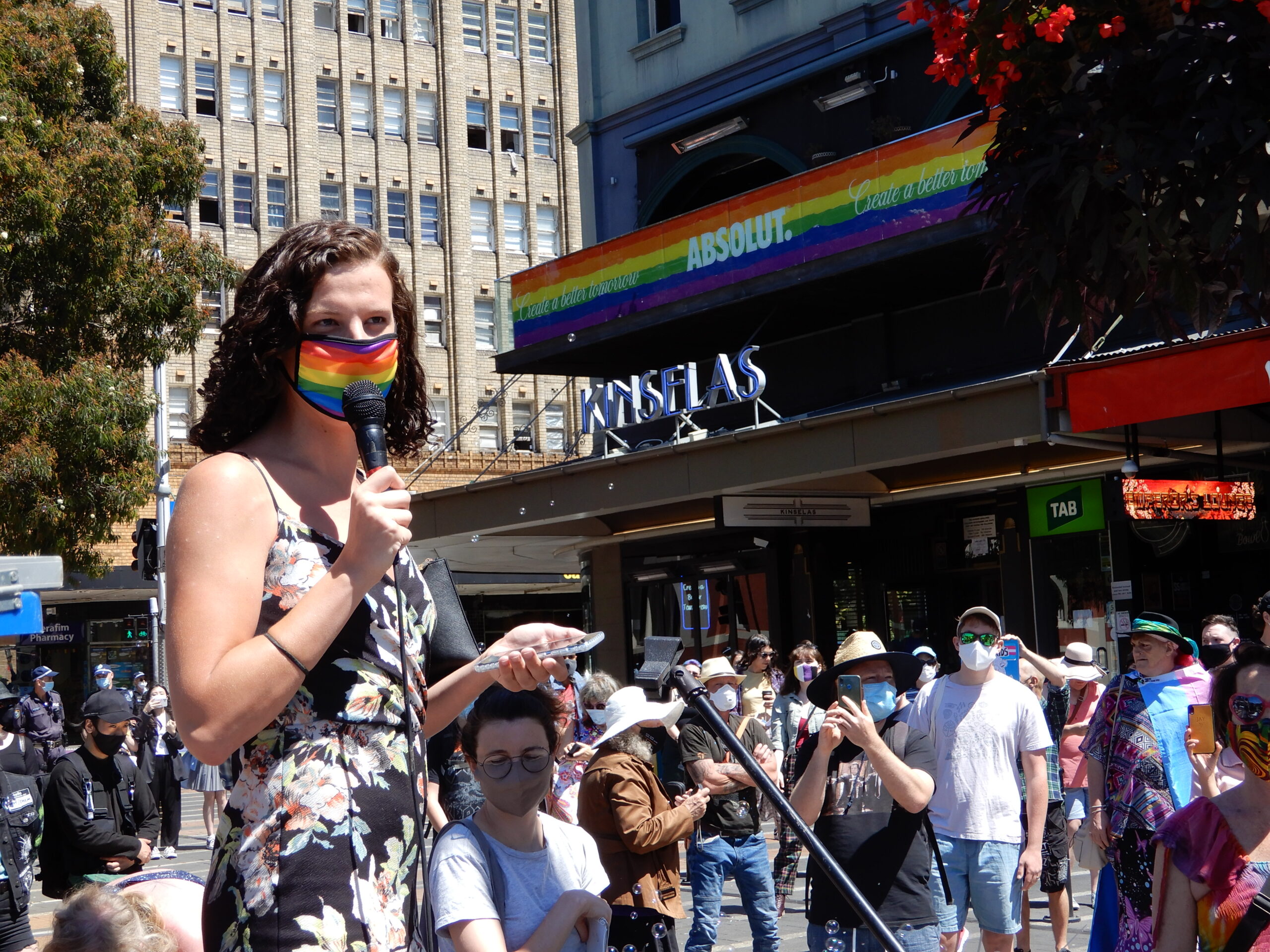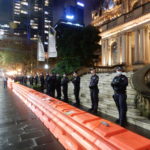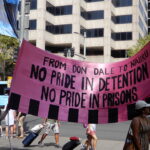Join the Trans Day of Resistance in Newtown: Pride in Protest’s Charlie Murphy

Pride in Protest and Trans Action Warrang are calling on Sydneysiders to get out on the streets and join them at the Trans Day of Resistance rally in Newtown, because, as both activist groups assert, there’s a lot to be resisting at present.
While the Morrison government has put its religious discrimination legislation – with its detrimental implications for trans people’s access to healthcare – to sleep for COVID, in this state, Mark Latham has been tinkering away at his own religious freedoms bill.
But what’s even more concerning is Latham’s education bill, which seeks to ban the teaching and mentioning of gender fluidity and in turn transgender and gender diverse people from schooling systems via threat of dismissal for staff.
Then there was Perth lord mayor Basil Zempilas, who, when a radio presenter suggested some people identify as a gender different from the sex assigned at birth, responded, “No, you are wrong. If you’ve got a penis, mate, you’re a bloke. If you’ve got a vagina, you’re a woman. Game over.”
Trans liberation
The Trans Day of Resistance protest will have a focus “on the fight for trans liberation and an end to systemic violence against trans people”.
Demands include universal and trans inclusive healthcare, as well as the toppling of the prejudicial bills before parliament.
The groups are also calling for the abolishment of the prison system, which led to the death in custody of Aboriginal trans woman Veronica Baxter just days following the 2009 Mardi Gras, after authorities placed her in a man’s remand centre.
And defunding the police is also a priority for organisers. Indeed, the last major trans rights rally to take place in Sydney was met by an excessive show of force, after activists persisted in mobilising despite the NSW police commissioner successfully petitioning the Supreme Court to prohibit it.
Sydney Criminal Lawyers spoke to Pride in Protest spokesperson Charlie Murphy about why it’s important trans people get out on the street at present, the detriment Latham’s education bill has the potential to unleash, and the reasons behind the anti-trans sentiment that’s emerged of late.

Firstly, the Trans Day of Resistance rally is set to take place in Newtown on 21 November.
Charlie, why would you say it’s necessary for trans people to get out on the streets and express their resistance at this time in 2020?
It’s really important to come out on the streets right now because a lot of reactionary attitudes have been emerging recently, especially from people like Mark Latham and the bills he’s proposing.
Since COVID, the Religious Discrimination Bill has been delayed, but now that we’re in this crisis state – especially economically – a lot of people are looking for scapegoats.
Mark Latham is the first person to do it. We saw Basil Zempilas as well in WA making some comments on the radio.
People are feeling emboldened to make comments that are discriminating against trans people.
It picks up on the anger and confusion that people are feeling right now because of the state of the country, and the state of politics.
It’s really dangerous. And the best way to counter that is by showing popular power out on the streets and saying we’re not going to accept bigotry.
There’s a number of religious freedoms bills both at the federal and state level that you’re rallying against.
One Nation’s Mark Latham has an education bill that specifically targets trans kids. What are the implications of that bill for trans people?
What it means for trans people is an erasure of our identity. It’s basically saying that trans people’s existence shouldn’t be acknowledged in a place like school, which should be the first place that our society knows, learns about and understands trans people.
They want to erase our identity right at the start. It sets up a society in which they don’t want people to know that trans people exist.
They don’t want trans people to feel they can start their life by being out, thriving and being who they are. They want them to carry that shame for the rest of their lives.
It’s an incredibly sadistic and cruel way of trying to hurt and oppress minorities, at a time when they’re vulnerable, and when support is most crucial.
Pride in Protest and Trans Action Warrang are co-hosting the rally. The groups acknowledge the event will take place on Gadigal land, and as well that trans issues disproportionately affect First Nations trans people.
Can you speak a bit on why that’s the case?
It’s the case because it intersects with so many other issues that Indigenous people face. When it comes to access to healthcare and their economic position, so much is barred from them.
Healthcare is and should be a right for all people, but especially for trans people. Their healthcare is very specific, and they have specific needs.
A lot of this healthcare is centred around urban areas, and in terms of specialisation, it isn’t available to a lot of people. So, having access to that specialist care can be incredibly difficult.
The other way it disproportionally affects Brotherboys and Sistergirls is because of the Indigenous incarceration rate.
When trans people go into prisons – and most often that’s Indigenous trans people – they face a number of issues that are compounded by the fact that they’re transgender.
That includes being sent to a prison that doesn’t align with your chosen gender. It means denial of healthcare.
And in really horrible circumstances it means a death in custody, as happened with Veronica Baxter.
You’ve just touched on this, but another issue the rally is prioritising is abolishing prisons. Why is this a focus for you?
What I would add to what I’ve already said is we don’t just want to end up with prisons that are “nicer to trans people”. That’s why the abolition campaign is so important.
If people come along and say, “We’ll provide the right healthcare, and we’ll put them in a prison of their chosen gender.” They’re still being put in a system that isn’t designed to rehabilitate. It’s designed to punish.
All people suffer in gaols, whether they’re cis gendered or trans.
And lastly, Charlie, the last trans rights rally that took place in Sydney saw a heavy police presence and the use of excessive force. You spoke at the rally.
Are you concerned about the policing of the Trans Day of Resistance rally?
I’m concerned about the policing of any protest. The way the NSW police has been acting is not specific to the current COVID situation. Police will always be clamping down on protest.
So, whether they’re using the excuse of COVID restrictions for the amount of people who are there, or whatever they want to pull out, I’m always concerned about that.
The reason why we do go out into the streets is to say that we don’t accept that kind of repression, whether it’s to do with COVID or not.
We are responsible in our rallies in terms of our COVID safe plans.
We want to say to the police: We know that we’re being responsible. There is a right to protest. And therefore, because we know we are safe, we’re going to do it, whether it’s with your permission or not.







